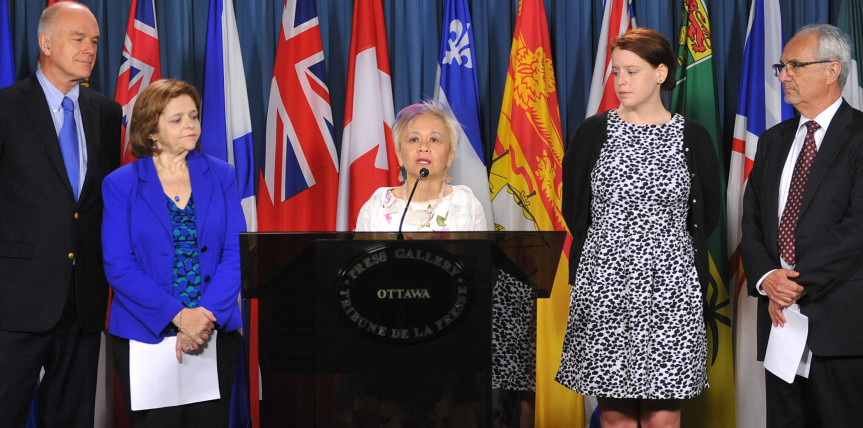The Canadian Organization for Rare Disorders (CORD) says the new strategy will encourage governments and health-care providers to ensure that all Canadians living with rare diseases receive timely, quality care, regardless of what disease they have or where they live.
“We will see patients who [will be] able to get many of their needs addressed that are currently not being addressed, are paying out of pocket, or are travelling out of the country,” said Durhane Wong-Rieger, president and chief executive officer of CORD.
Canada lags behind many other countries when it comes to caring for people with rare diseases, Wong-Rieger said.
For example, Canadians with atypical hemolytic uremic syndrome (aHUS), a life-threatening genetic disease that damages vital organs and affects fewer than 100 people in the country, often require treatment with the drug Soliris at a hefty price tag of more than $700,000 a year. The cost spurred the federal Patented Medicines Price Review Board to call a public hearing into why the manufacturer, Alexion Pharmaceuticals, charges more in Canada than in other developed countries.
In February, the Ontario government announced expanded funding of Soliris on an “interim” basis on the same day that patients with aHUS held a rally and news conference at Queen’s Park demanding that the drug be covered.
Wong-Rieger said her group’s new strategy will recommend an improvement in detecting, treating and preventing rare disorders. It also aims to improve the education of health-care providers, provide sustainable access to therapy and promote innovative research by supplying genetic researchers with the tools and support they need.
“I think a strategy like this fosters hope,” said Maureen Smith of Ottawa, who has lived with congenital panhypopituitarism for more than 50 years. The disease, which affects five in one million people, prevents the pituitary gland, which is responsible for secreting hormones that help control such things as growth, blood pressure and metabolism, from stimulating any endocrine glands, which secrete hormones directly into the blood. This results in an array of issues from poor growth to hypoglycemia.
“I’m hoping that other people, especially children, are going to have a strategy that will highlight what their extraordinary challenges are and get ordinary treatment like all other Canadians have access to,” said Smith, 56, who works as a secretary with CORD.
Wong-Rieger said awareness and community support are main components of the strategy, since people living with rare disorders can feel isolated.
Several hundred support groups have been created for those living with rare diseases, many of them started by patients and families themselves. Wong-Rieger said that while these groups excel at spreading awareness and education, most of them have few resources and are stretched beyond their financial means.
CORD has planned a national tour to introduce the strategy to politicians, health-care providers and patients in the coming months.
